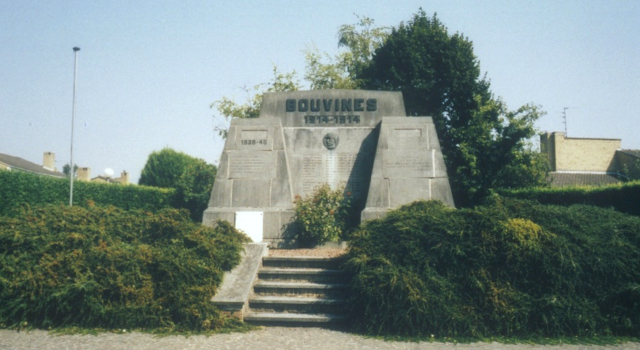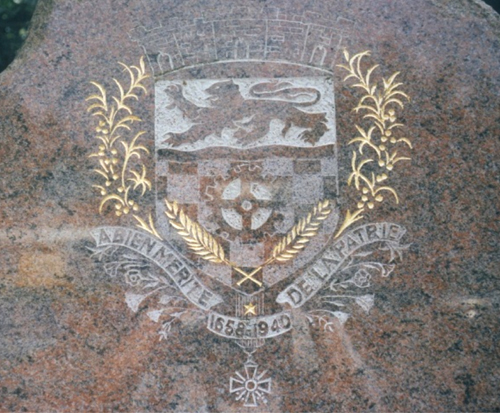Articles

No Comments
By Voices
On 09, Jun 2014 | No Comments | In Commemoration | By Voices
Remembering ‘14 -‘18: Forgetting Other ‘14 -‘18s
Dr John Carman, Ironbridge International Institute for Cultural Heritage,
University of Birmingham
This year we will choose to remember the outbreak of World War One and many will also recall the D-Day landings of June 1944 from World War Two, the one a century ago, the other seventy years. There are now no survivors in Britain of the land war of 1914 to 1918 and as time passes fewer who recall D-Day. Of the many who were not there but who will nevertheless remember these two events of the last century, including myself, we may wonder how many will recall other wars with similar dates.
At Bouvines in northern France the coming of war with Germany in 1914 was not seen as a singular event but as a continuation of earlier conflicts: the village war memorial makes a direct connection between the battle of Bouvines fought against a German Imperial army in 1214 – part of a war in which England was also involved against France – and the retreat of French forces to the Marne in 1914. By placing the dates of both events on the memorial rather than the more conventional 1914 to 1918 the perceived link between two events 700 years apart is made manifest.
As we commemorate particular wars this year, it raises questions as to what we are choosing thereby to forget. I see no indication of efforts to remember other wars fought in the fifteenth year of earlier centuries, among which are: the Napoleonic Wars (1801 to 1815), the War with America (1812 to 1815), wars against France and her allies ( 1213 to 1214, 1337 to 1457, 1510 to 1514, and 1702 to 1714), and war between England and Scandinavia (1014 to 1016), together with the large number of other conflicts in which Britain or parts of Britain have been involved over the centuries, not forgetting various vicious civil wars. The history of our country is written as much in the blood of others as anything else.
 It is an interesting comparison with the French experience, where past histories are as likely to be referenced in the commemoration of twentieth century conflict as World Wars One or Two. The village crest of Leffrinckoucke, three kilometres from Dunkirk and central in 1940 to the ‘Dunkirk perimeter’, a trap from which thousands of allied soldiers escaped, makes two connections: to the events of 1940 where British and French troops worked as allies; and to 1658 and the Battle of the Dunes, where French and English soldiers operated successfully as allies against a Spanish army.
It is an interesting comparison with the French experience, where past histories are as likely to be referenced in the commemoration of twentieth century conflict as World Wars One or Two. The village crest of Leffrinckoucke, three kilometres from Dunkirk and central in 1940 to the ‘Dunkirk perimeter’, a trap from which thousands of allied soldiers escaped, makes two connections: to the events of 1940 where British and French troops worked as allies; and to 1658 and the Battle of the Dunes, where French and English soldiers operated successfully as allies against a Spanish army.
The message at both Bouvines and Leffrinckoucke is the same: ‘we have been here before’. What message does our current commemoration of 1914 offer us?



Submit a Comment